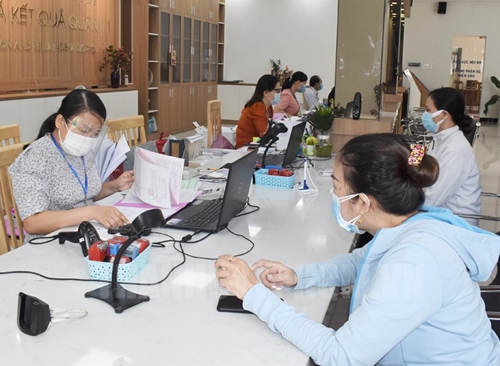    |
 |
|
(Photo for illustration: hcmcpv) |
The document highlights the need to complete mechanisms in decentralization and the delegation of power to clearly define the obligations and authority as well as responsibility of the Government, the Prime Minister, ministries, sectors and localities, which goes along with the synchronization of the legal system and the strengthening of the power supervision and control.
Detailed legal regulations on decentralization and the delegation of power in State management among the Government, the PM, ministries, sectors and local administrations will be built for particular sector and area.
Meanwhile, regulations on the functions, tasks, authority and organizations of ministries, sectors and localities will be reviewed, adjusted and supplemented, with the decentralization and delegation of power being associated with the administrative reform.
In 2022, 100 percent of the public services are expected to be provided online at Level 4.
Meanwhile, regulations related to planning and economic-technical standards, criteria, conditions and quota as well as price and fee control mechanisms for public services in different sectors and areas will also be completed, laying the foundation for the decentralization in the processing of administrative procedures.
Special mechanisms and policies for the development of centrally-run cities and provinces will be built to turn the localities into driving forces for economic growth of regions.
According to the resolution, power inspection, supervision and control measures will be strengthened over State management agencies from the central to local levels during the process of decentralizing and delegating of power.
Source: VNA